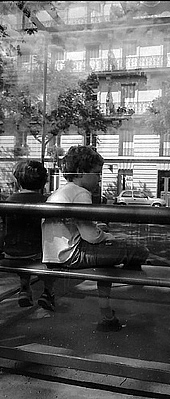Some contemporaries of Abraham Lincoln described the
 16th U.S. president as exhibiting awkward mannerisms and a clumsy gait. About a year ago, researchers at the University of Minnesota announced the discovery of a gene for a rare neurodegenerative disorder called spinocerebellar ataxia type 5 (SCA5)—which can strike between early childhood and old age, affecting speech, writing and/or movement—in a family descended from Lincoln. Scientists say the president himself had a one-in-four chance of suffering from the disease, which affects about 0.005 percent of people and stems from a gene mutation that produces a protein called beta spectrin.
16th U.S. president as exhibiting awkward mannerisms and a clumsy gait. About a year ago, researchers at the University of Minnesota announced the discovery of a gene for a rare neurodegenerative disorder called spinocerebellar ataxia type 5 (SCA5)—which can strike between early childhood and old age, affecting speech, writing and/or movement—in a family descended from Lincoln. Scientists say the president himself had a one-in-four chance of suffering from the disease, which affects about 0.005 percent of people and stems from a gene mutation that produces a protein called beta spectrin. Now, University of Utah researchers studying mutant nematode worms, whose nerves literally break due to their inability to express beta spectrin, may explain the coordination deficits observed in Lincoln's progeny. The group reports its findings in the January 29 issue of The Journal of Cell Biology.
Researchers studied mutant nematodes as embryos, newborns and one-day-olds to see the effect of a beta spectrin deficiency on nerve cells. Using a jellyfish gene to illuminate the worms' neurons, the team found that there was little to no breakage in the nerve cells in embryonic nematodes. Nematodes that had just hatched, however, showed 26 percent breakage and day-olds had damage to 60 percent of their nerve cells.
Each of these breakages occurred at the neuron's axon, a thin fiber that the cell uses to send electrical impulses to neighboring cells. As a cell grows, the cell body sends out a long, wirelike extension called a growth cone, which drags the axon (and thus the cell body) behind it as it searches for a target junction, or synapse, where it can communicate with other cells. "It's kind of like one of those trucks that lays down cable that's connected back to the cell body," study co-author and biology postdoctoral student Marc Hammarlund says. The researchers observed branching of axons as well as errant new growth cones—indicating that the nerve cells had attempted to repair themselves. This suggested beta spectrin is not part of the development of healthy nerve cells, but plays a role in maintaining them.
In another strain of nematode, the authors deleted the beta spectrin gene—known as unc-70—as well as two genes that controlled muscle contraction. The latter deletions caused this family of worms to be paralyzed. Interestingly, the sedentary animals showed no damage to their axons, despite the fact that beta spectrin was nowhere to be found. Clearly, the authors concluded, the protein's role must be in preventing breakage of the axons during movement.
"These animals are constantly in motion—swimming around, eating," Hammarlund says. "Just like when you move or I move—every time you move your arm or your leg, your neurons have to stretch to keep up. And when these animals move, their neurons can't stretch, and they snap instead."
The researchers raise the point that a similar snapping of the nerves could be the cause behind SCA5—meaning this brittleness may have plagued Lincoln.
Laura Runum, a human geneticist at the University of Minnesota and the senior investigator on the study that found the SCA5 gene, says there is no evidence that the current finding relates to the neurodegenerative disorder. "In the worm model, they are missing beta spectrin, and in the human there are multiple types of beta spectrin—we're not missing any of the spectrin, but the sequence of the protein has changed," Runum says. "Any kind of link to Lincoln's frazzled nerves is really missing a whole bunch of steps from worms to humans, first of all, and then back on to the president."
Hammarlund agrees that the link between the mutation of spectrin in worms and SCA5 in humans is a possibility at best, but says it seems plausible given that SCA5 is characterized by a nervous system disorder in the arms and legs "That's just an idea," he insists. "That would have to be confirmed by future experiments."




没有评论:
发表评论